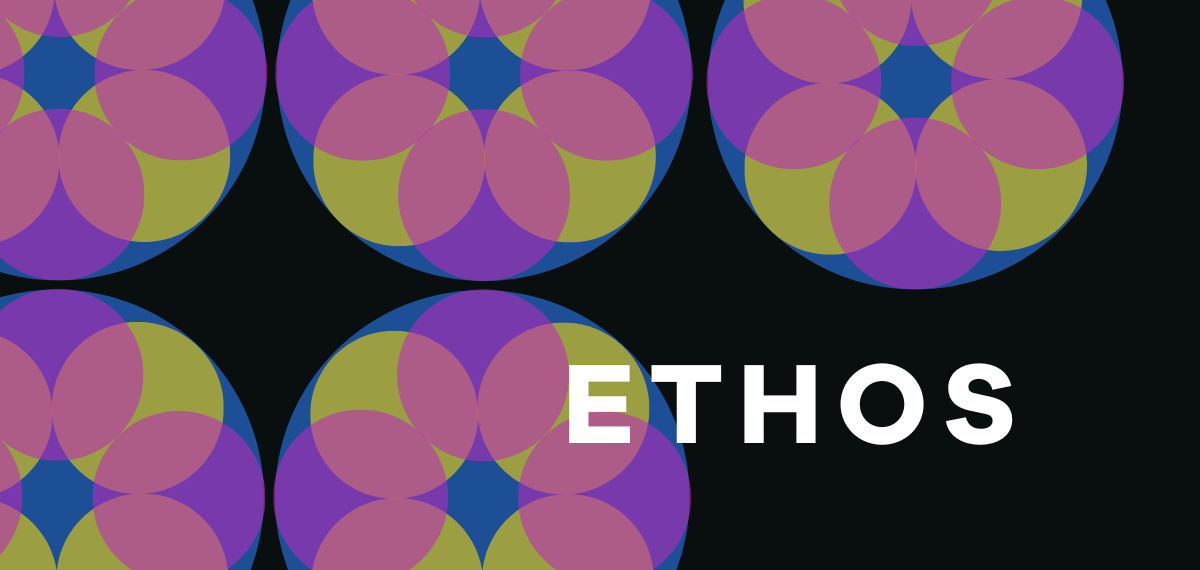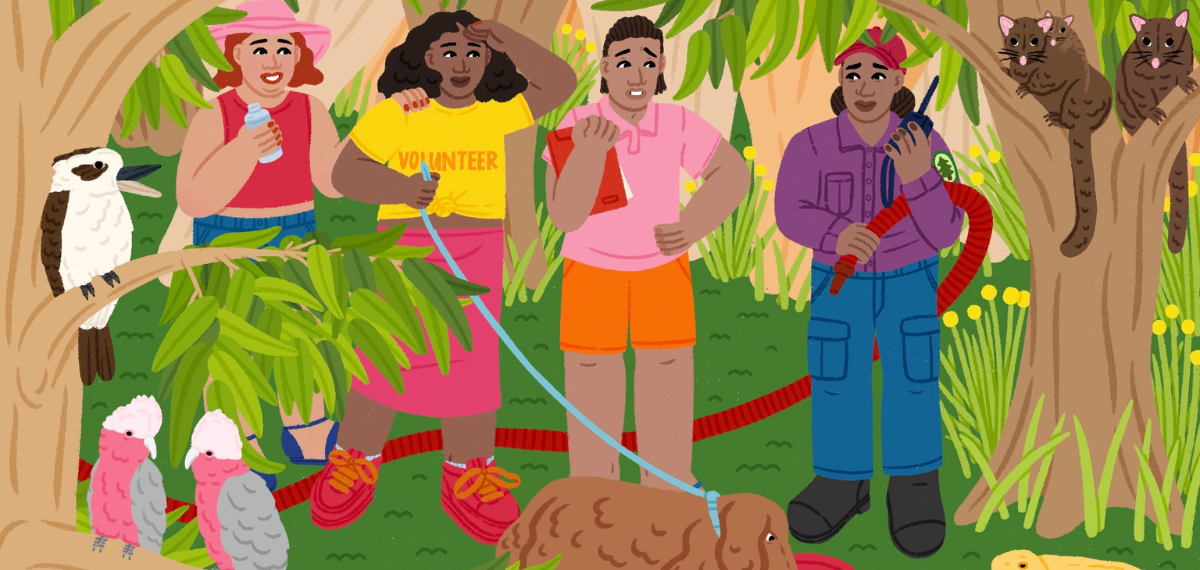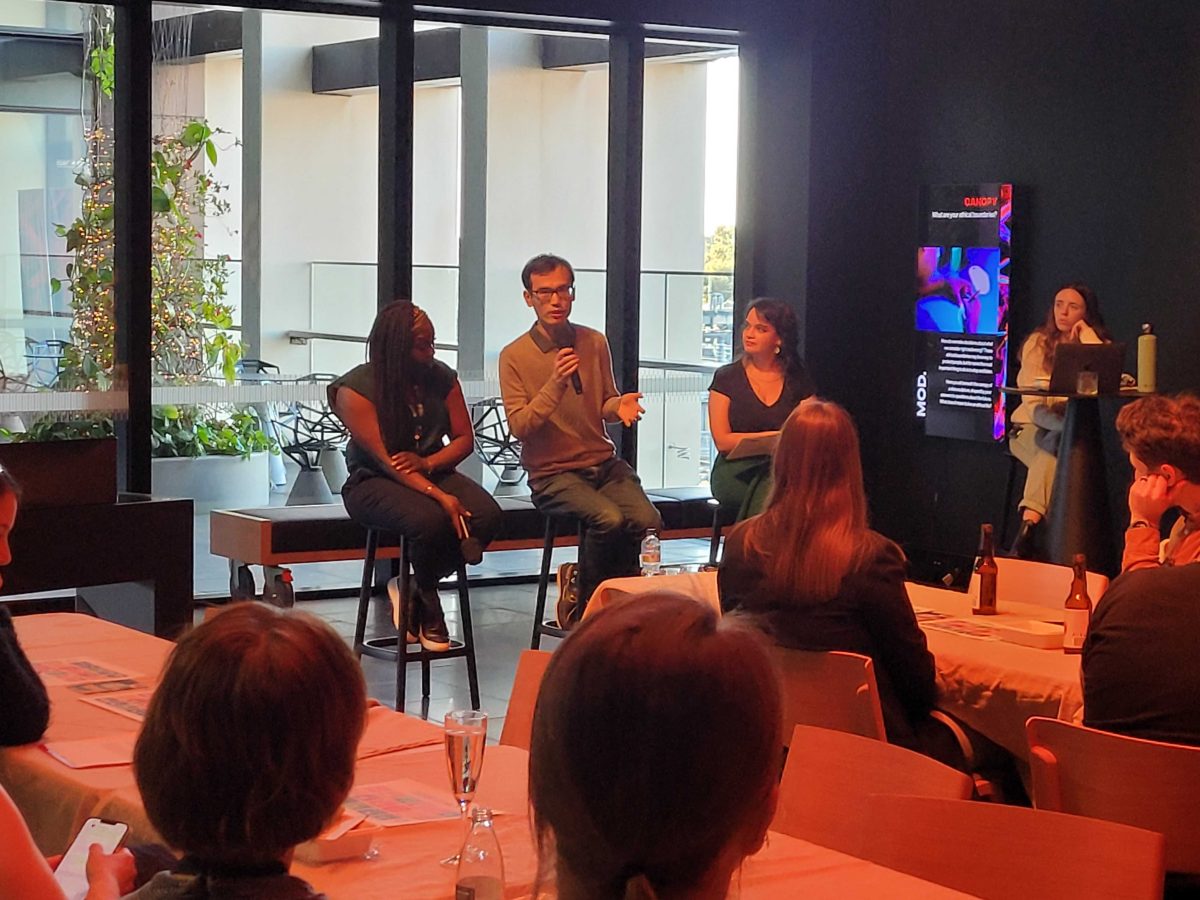Posted 23 Nov

Nature is important, that’s something that most of us agree on. But housing, infrastructure, agriculture, animals, re-creation and wellbeing are important too. How do we share nature to satisfy the needs and desires of people, whilst nurturing plants, animals, earth and skies? MOD.’s latest Ethos night brought together researchers and the public to discuss the difficulties of balancing good intentions with practicalities. The question, ‘How can we share nature?’ was explored.
Ethos is a quarterly program hosted by MOD. that explores conversations related to topics that may become increasingly crucial for our futures. ‘How to share nature,’ began with guests playing MOD.‘s latest interactive narrative fiction, Eucalara Commons. A fictional environment south of Adelaide; a farmland turned National Park. As you enter Eucalara you take on the role of caregiver to the land, working to restore it back to its natural state, but when faced with systematic, unexpected and contradictory choices how will you balance your morals? Conversations facilitated by Dr Debbie Devis explored nature as a resource, the risk feedback loop and the importance of sharing world views.

Everybody has their own world views because the world is so massive and complex, that it is impossible for any individual to truly grasp everything. As a result of this infinite availability of information, our brains all learn to filter in and out different pieces of information. Carpenters notice the details in wooden structures, an artist sees contrast and colours, the train driver notices the weather effecting the tracks and the gardener sees roots and shoots everywhere. The things we concentrate on change the things we view in our worlds and we take our lens everywhere we go. The uniqueness of everyone to discover different things is an amazing strength of humanity. A strength activated when we share our observations with others. This sharing of our views allows us to see more of the world.
Conversations about our collective world, such as nature, need to be filled with people who have diverse ways of seeing the world to expand what we are able to see.

Dr Alec Zuo talked about how farmers who believed in climate change 5 years ago and took action are now less concerned about climate change’s effects. Whereas the farmers who did not take action 5 years ago, took more risks, and are now more concerned. Taking action on possible threats reduced future concerns and anxieties. Creating a feedback loop wherein the more the farmers prepared, the less concerned they became with risk. Perhaps we could utilise this approach in the context of nature. By preparing for the losses of animals, biodiversity and ecosystems now with actions, we could be less concerned later.
Elizabeth Damoah explained a method for growing empathy for water, by first bringing awareness to the empathy you have for pets. When we acknowledge that we respect our pets as they are living entities, we can than think about transferring that respect for other aspects of life, like water.
Another way to grow empathy for water is to re-frame it as a living entity rather than a resource. Treating nature as a resource is similar to treating animals as products. If we are to share the world with plants, animals and minerals it is helpful to think about them as living beings, not just consumables. This changes the way we centre humans in the world, growing respectful and empathetic world views. Remember world views come with us everywhere we go, thus we need to bring respect and empathy to everything that we see and do. Nature is life, it encompasses plants, animals, ecosystems, society and the planet. Everything lives alongside each other, do you want to share it more fairly?
Ethos is made possible with funding through the Deputy Vice Chancellor of Research and Enterprise. We hold Ethos events regularly at MOD. You can find more details here.
Author: Brooke Ferguson, Futures Officer and Moderator, MOD.